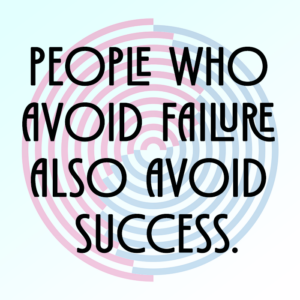 Have you ever heard of Chris Argyris? The renowned father of organizational philosophy introduced a slew of innovative insights into human behavior, including double-loop learning, the ladder of inference, and the dichotomy of espoused theories vs. theories-in-use.
Have you ever heard of Chris Argyris? The renowned father of organizational philosophy introduced a slew of innovative insights into human behavior, including double-loop learning, the ladder of inference, and the dichotomy of espoused theories vs. theories-in-use.
Argyris showed an insatiable thirst for knowledge–“It sounds corny, but I love learning for its own sake”–which may explain why he focused so much attention on how others approached education and self-improvement. As described in Teaching Smart People How to Learn, he noticed a seeming paradox in how some of the most academically distinguished professionals resisted learning:
“Nearly all the consultants I have studied have stellar academic records. Ironically, their very success at education helps explain the problems they have with learning. Before they enter the world of work, their lives are primarily full of successes, so they have rarely experienced the embarrassment and sense of threat that comes with failure… People who rarely experience failure, however, end up not knowing how to deal with it effectively. And this serves to reinforce the normal human tendency to reason defensively.”
Does this observation sound familiar? As educators, don’t we frequently encounter students who, having sailed through schoolwork all their lives, crumble when confronted with real academic challenges?
Argyris observed this reflexive defensiveness again and again, noting that many of these professionals developed extremely ‘‘brittle’’ personalities. They responded to failure in highly emotional and maladaptive ways: falling apart, perseverating, or deflecting blame by bad mouthing others. Again, sound familiar?
“Such brittleness leads to an inappropriately high sense of despondency or even despair when people don’t achieve the high levels of performance they aspire to. Such despondency is rarely psychologically devastating, but when combined with defensive reasoning, it can result in a formidable predisposition against learning.”
And there lies the crux of the challenge in supporting students who, in Argyris’s words, not only fear failure but also fear the fear of failure itself. Their defensiveness becomes a barrier to learning. As tutors, teachers, and coaches, we have to help break down those feelings, cultivate resilience, and fan that spark of intellectual curiosity that drives learning.
Robert T. Kiyosaki, better known for financial fables than educational insight, deftly summarizes why this type of rigid, non-resilient student struggles to advance: “Winners are not afraid of losing. But losers are. Failure is part of the process of success. People who avoid failure also avoid success.”
So, rather than provide an action item, I’ll ask you a question that I’d love a response to.
How do you help this type of student–brittle, perfectionist, resistant to challenge or change–break through self-limiting beliefs in order to reach the next level of ability or understanding?
Send me your best strategies to be included in next week’s newsletter!
— Mike Bergin
Tutor Tips, Tools, and Thoughts
Learning Theories: Double-Loop Learning
What does double-loop learning mean in the context of education?
The Ladder of Inference: How to Make Better Decisions
Use this framework to actively examine your thinking and reject unconscious bias.
How to Pitch Podcast Appearances
Don’t miss out on one of the most effective and enjoyable forms of marketing out there.
What Clients Really Want To Know About Your Consulting Firms’ Approach
Basically, don’t overshare details.
A Strengths-Based Approach to Neurodiversity
What does a strengths-based model of neurodiversity mean?
Did you enjoy this issue of Tutor: The Newsletter? Get the next issue right in your inbox by subscribing below:
